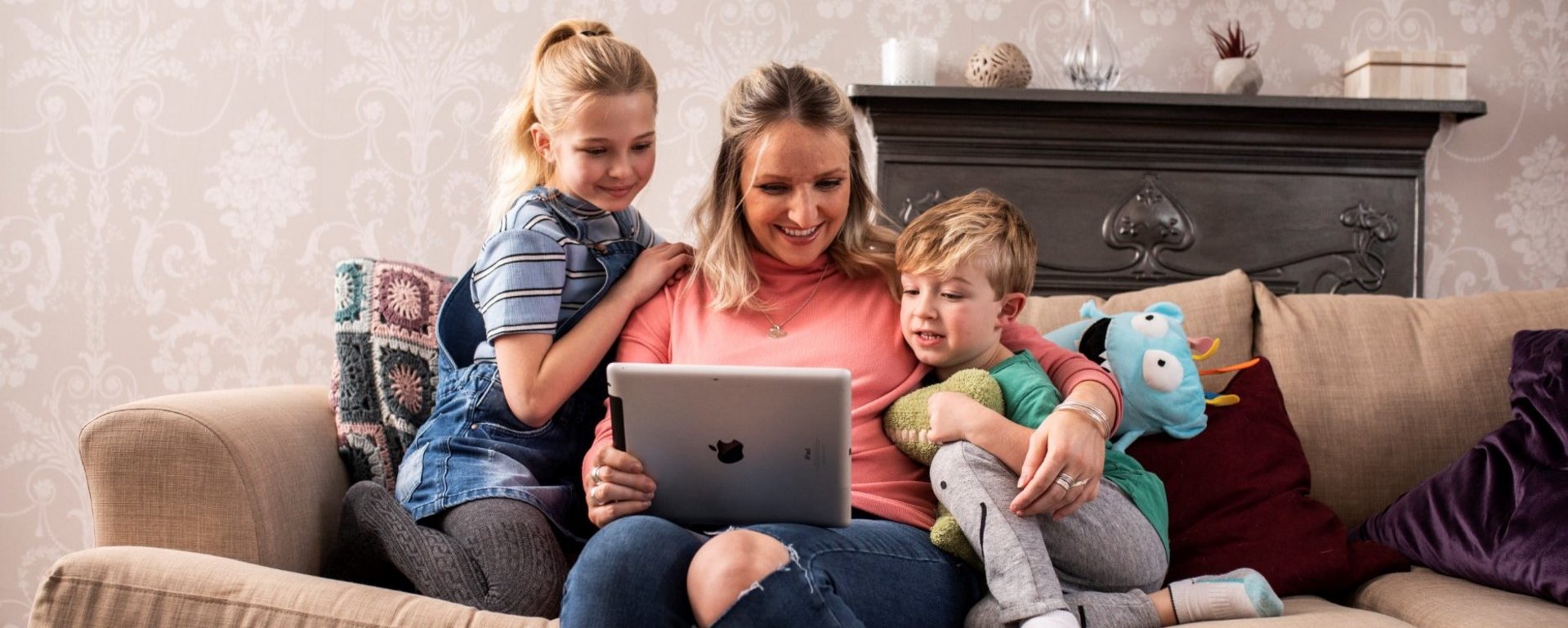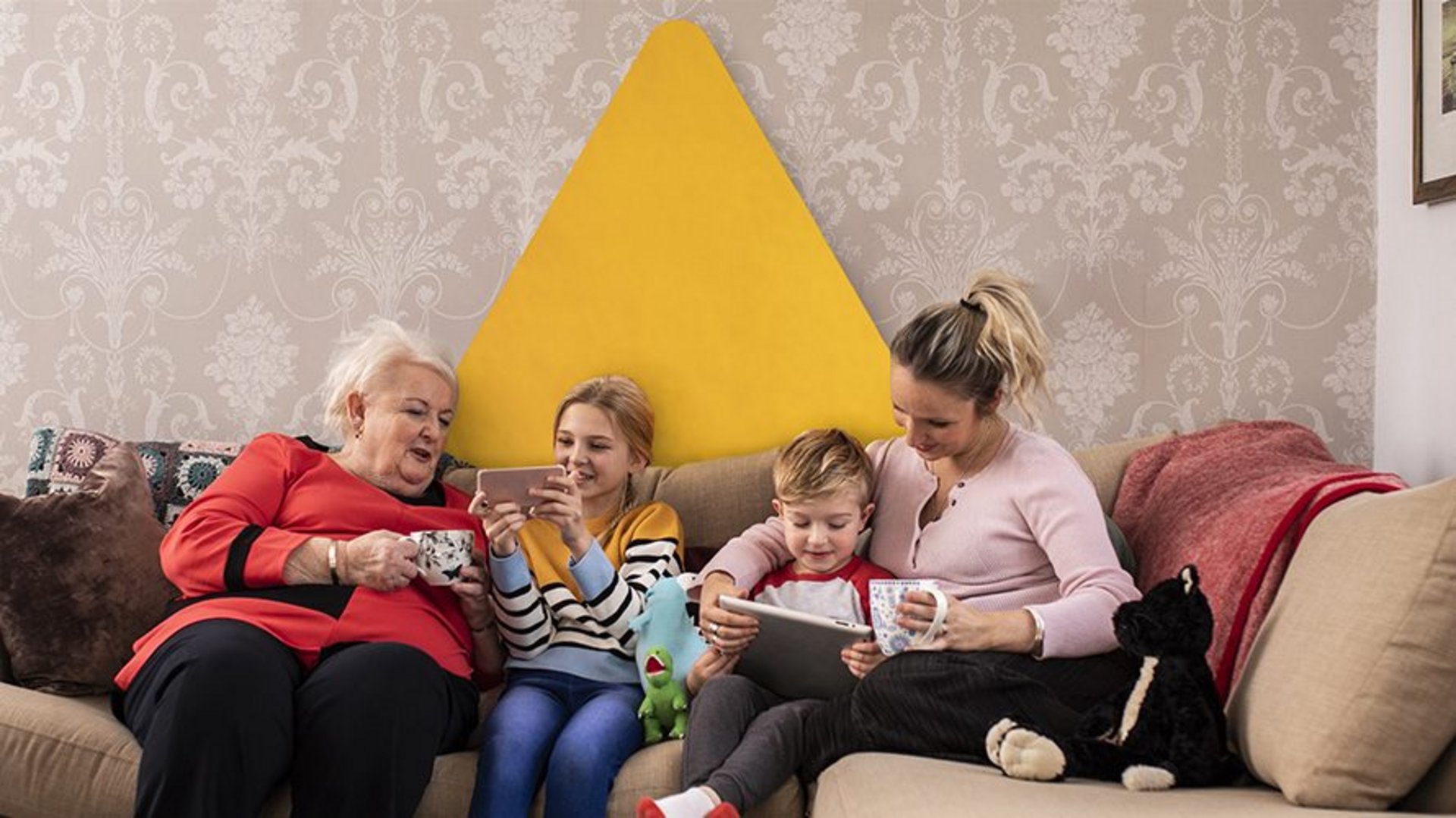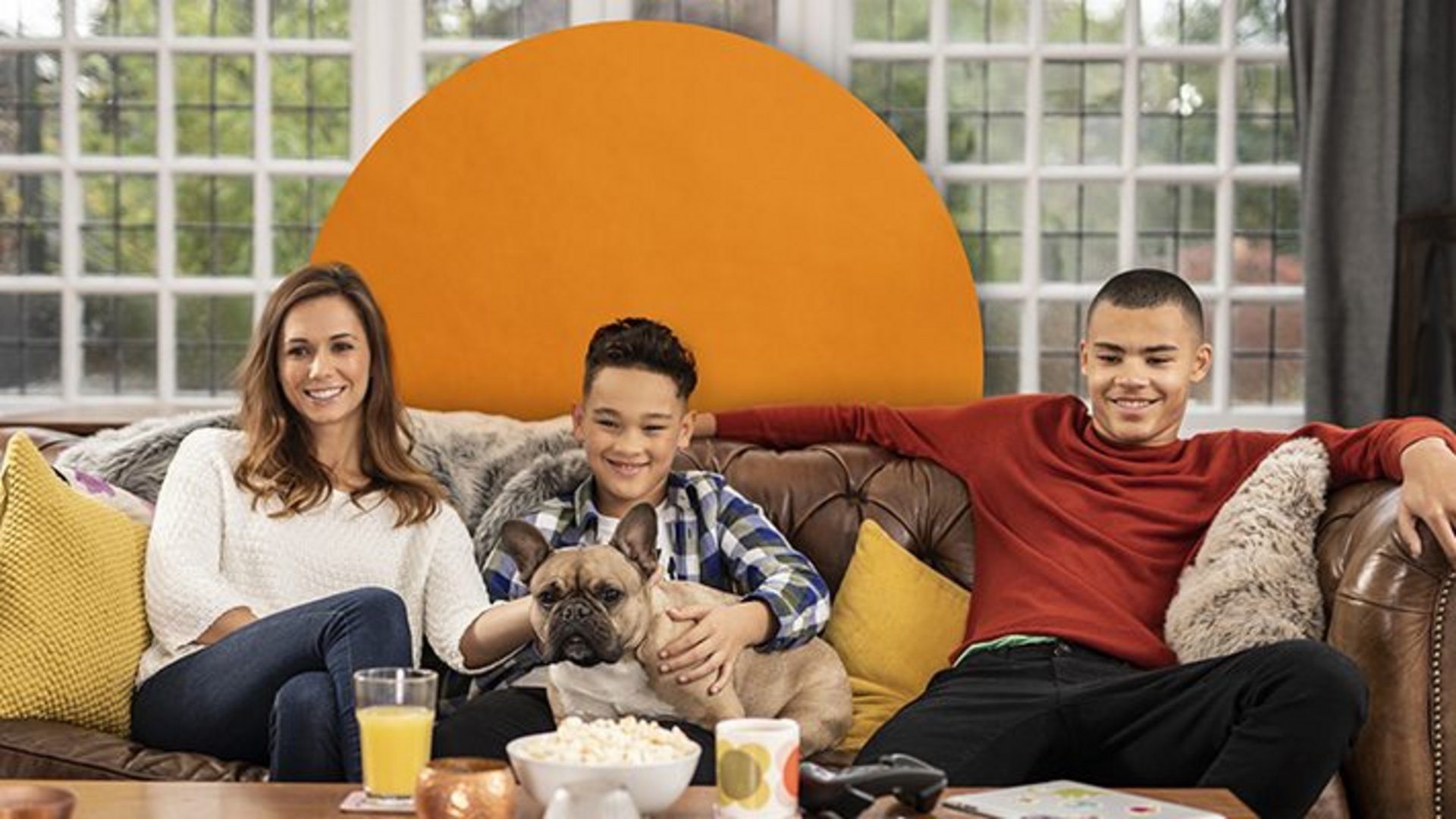
Parents' Guide To Language
Parents often tell us they're concerned about what words their children will hear in films and TV shows. Here's a handy guide to what bad language you can expect to hear in content rated U, PG and 12A/12.
Films, videos and websites can make a huge difference in our lives and, like families across the country, we want that difference to be a positive one, especially for young children and teens.
We are often asked which words can appear in a U, PG or 12A/12 rated film or TV show. It can be hard for us to answer this question as context is absolutely vital in deciding how we rate content. We know from our guidelines research that parents don’t want any mild bad language in a U rated film, and for PG content, if words are used aggressively or very frequently then this could result in a higher classification.
Here is a rough guide for parents, focusing on the most common words that are likely to be acceptable at U and PG.
It may be possible that you will hear other, possibly stronger, terms in content rated from a long time ago. That’s why it’s important to always check the long ratings info of content before you press play so you can view what’s right for you and your family.

U stands for universal.
It means films that anyone can watch, including children as young as four. But every child is different so it’s always worth checking the ratings info for a U film if you are considering showing it to very young children. U films should have a positive overall tone. We think carefully about what very young children already know, what might scare, confuse or upset them, and the lasting impression the film might have. If there is any violence or threat it should be over quickly and reassure children that everything will be ok. U films should make clear the difference between right and wrong.
In a U rated film, you might hear infrequent use of very mild bad language.
Here’s some examples from well known films.
Monsters Inc.
contains mild slapstick and comic threat
Monsters, Inc. is an animated adventure in which monsters need to collect children's screams to power their world, but when two monsters befriend a lost human child they try to get her safely home.
“Look at the big jerk. He ruined my life, and for what? A STUPID KID! Because of you, I am stuck in this frozen wasteland!”
Monsters Inc. is a funny and heartwarming tale about friendship and contains some very positive themes and messages for children. In this scene, Mike is frustrated at Sully, and uses this very mild bad language to vent his frustration. It is not used in an aggressive way, and the comic delivery of the line also mitigates the impact.
Onward
mild threat, very mild bad language
Onward is an animated fantasy adventure in which two elf brothers attempt to bring magic back to their world from which it has disappeared.
"You act like you know what you're doing, but you don't have a clue! And that's because you are a screw up... And now you've screwed up my chance to have the ONE thing I never had!”
In Onward, the term screw up is used in place of the word “messed up”, and the phrase is not used as a substitute for strong language, or used in a sexual sense. In this context, this word is acceptable at U. However, if the character directed the phrase at another character in an aggressive or angry manner, then this could result in a higher classification.
So, what other bad language could I hear in a U rated film?
Words you may hear in a U rated film or TV show may include:
'damn', 'hell', 'God', 'Jesus Christ'. We know that some people find these words particularly offensive, but our research shows us that the majority of parents are comfortable with their children hearing them in U rated films. 'butt', 'jerk'.
And, depending on the context, you may also hear the word ‘screw’ if it is used instead of ‘messed up’, eg. ‘I screwed up’.
‘Kameena’ (meaning rascal, scoundrel); ‘Tawaif’ (meaning Courtesan)

PG stands for parental guidance.
That means that anyone can watch the film, but it’s different from a U rating because children under eight, or more sensitive children, might find something about the film upsetting. PG films can be more complex or intense, but we still focus on avoiding content or films with an unsettling tone that might make younger children feel anxious. We pay particular attention to scenes and issues that tap into real life worries. So while PG films might include tough ideas like crime, discrimination or bullying, they would never suggest that these are acceptable.
In a PG rated film, you can expect to hear mild bad language only.
Here’s some examples from well known films.
Soul
mild bad language, fantasy threat
Soul is a US animated fantasy in which a music teacher is suddenly transported out of his own body and must fight to find his way back to his life.
“Oh crap, she knows.”
This use of mild bad language is a category defining issue for Soul, and this scene is the only time in the film when there is use of mild bad language. That’s why you can see ‘mild bad language’ included in the short ratings info, which you can find on the Black Card before you watch a film in the cinema, or on our website or app. This use of mild bad language is in a comic way, as Joe is frightened of what his Mom is about to say to him. This term is also used by an adult, and so children are much less likely to copy it.
Back To The Future
“Holy shit!”
Marty McFly exclaims this term during an action scene. This is the only time this word is used in the film, so the use is also infrequent.
So, what other bad language could I hear in a PG rated film?
At PG, we only allow ‘mild bad language’. If words are used in an aggressive or very frequent way, then this might result in the content being rated higher.
Words you may hear in a PG rated film or TV show, depending on the way they are used, may include:
‘bloody’, ‘bugger’, 'shit', 'arsehole', 'bastard', 'bollocks', 'piss', ‘crap’, ‘arse’, 'ass', ‘sod’, ‘git’, ‘arse’.
‘Harami’ or ‘Haramzada’ (meaning Bastard); ‘Gaandu’ (meaning Arsehole/ Bastard); ‘Mamme’ (meaning boobs).
We classify acronyms as if they are the spoken word, so you’re more likely to hear acronyms like WTF at 12 and 12A. However, if they are used discreetly, infrequently and not in an aggressive way, then you may hear (or see) the following in a PG rated film or TV show:
WTF, FU, FUBAR

12A/12
12 films deal with more complicated storylines and difficult ideas that may be too challenging for younger children. They may also contain stronger or more intense scenes of violence or horror that could upset younger viewers. 12 ratings are used on video-on-demand films and DVDs. No one under 12 may buy or rent a 12-rated DVD. A 12 rating on a video-on-demand film also means that the content and tone of the film is likely to be more suitable for a child aged 12 or over to watch at home or on a tablet.
In a 12A or 12 rated film you might hear moderate bad language, and sometimes even strong language depending on the context.
Here’s some examples from well known films.
Mean Girls
contains moderate language, sex and drugs references
“Boo, you whore!”
Regina George chastises her friend in an offhand way, before hanging up the phone. This term is not used in an aggressive way, and the comic delivery of the line also mitigates the impact.
Bohemian Rhapsody
moderate sex references, drug references, infrequent strong language
Bohemian Rhapsody is a biopic drama which follows the life and music career of Freddie Mercury.
“Freddie F**king Mercury.”
“You’re a legend, Fred!”
“You’re bloody right I am.”
Audience’s come to Bohemian Rhapsody expecting to see the backstory of Queen, and that’s exactly what they get. The film is set in the 1970s, and the nature of rock and roll at this time means that people watching will be expecting sex, drugs, and some strong language. This term is not said aggressively, and the infrequent amount it is said throughout the film means that it is containable at 12.
So, what other bad language could I hear in a 12A/12 rated film?
‘Prick’, ‘wanker’, ‘twat’, ‘bitch’, ‘whore’, ‘slag’, ‘slut’, ‘cock’, ‘dick’
Depending on context, frequency, and tone: ‘f**k’

